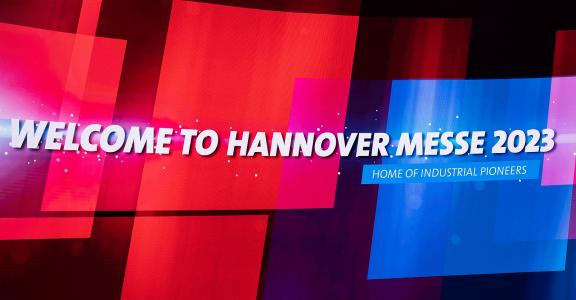The 2023 edition of the Hannover Messe (Hanover Fair), the world’s greatest industrial trade fair, was the first one without limitations since the outbreak of the pandemic. The fair was now fully accessible again to visitors from all over the world. In addition to digitization in general and a particular focus on hydrogen technology as part of the energy transition, you couldn’t miss two ‘buzz words’: 5G and artificial intelligence (AI).
In spite of the fact that AI and 5G as technologies don’t have much in common, nevertheless there is one thing that they share: their entry into our society cannot be stopped. For the manufacturing industry, it seems that they can primarily be useful when other current technologies do not provide a solution. A tidal wave of applications in the manufacturing industry thus does not seem to be happening yet.
5G
5G as a technology can be interesting in applications in which cabling (Ethernet) is not an option, for example because of mobility or the bridging of public spaces such as highways or waterways. 5G can also offer a solution when other wireless technologies fall short, for example where Wi-Fi scores insufficiently in the area of stability and/or capacity and where 4G cannot meet the requirements relating to speed and capacity. In such cases 5G offers advantages such as higher speed, greater capacity and lower power consumption. Because of the greater complexity and implementation costs, adoption will primarily take place as a supplement to existing technologies rather than as a replacement for them.
Artificial intelligence
AI (Artificial Intelligence) is not a technology but rather a generic name for a number of technologies which, together, enables machines to act and to learn at an intelligence level comparable to that in humans. In a manufacturing environment, that can be of interest for analysing and taking actions based on specific measurement data, for example from vision, vibration, sound, temperature, etc.
However, a general AI system that, for example, solves planning problems, taking into account all kinds of factors such as seasonal effects, human factors, external market factors, etc., does not yet appear to lie in the immediate future. To make this possible, structured data on all these possible influential factors is needed for training artificial intelligence (AI). In the consumer world, software applications are often made available free of charge for the sake of gathering as much data as possible. Aside from a limited group of front-runners, the manufacturing industry is only making the first cautious passes in the direction of digitisation. For this purpose even less data is collected, structured and shared, compared to the consumer world, which makes the development of broader AI applications, for example for planning and managing production systems, more difficult.
5G and AI thus seem to be an unstoppable trend that is currently going through a growth phase. In the future we may hear a lot more about these technologies and their applications in the manufacturing industry.





